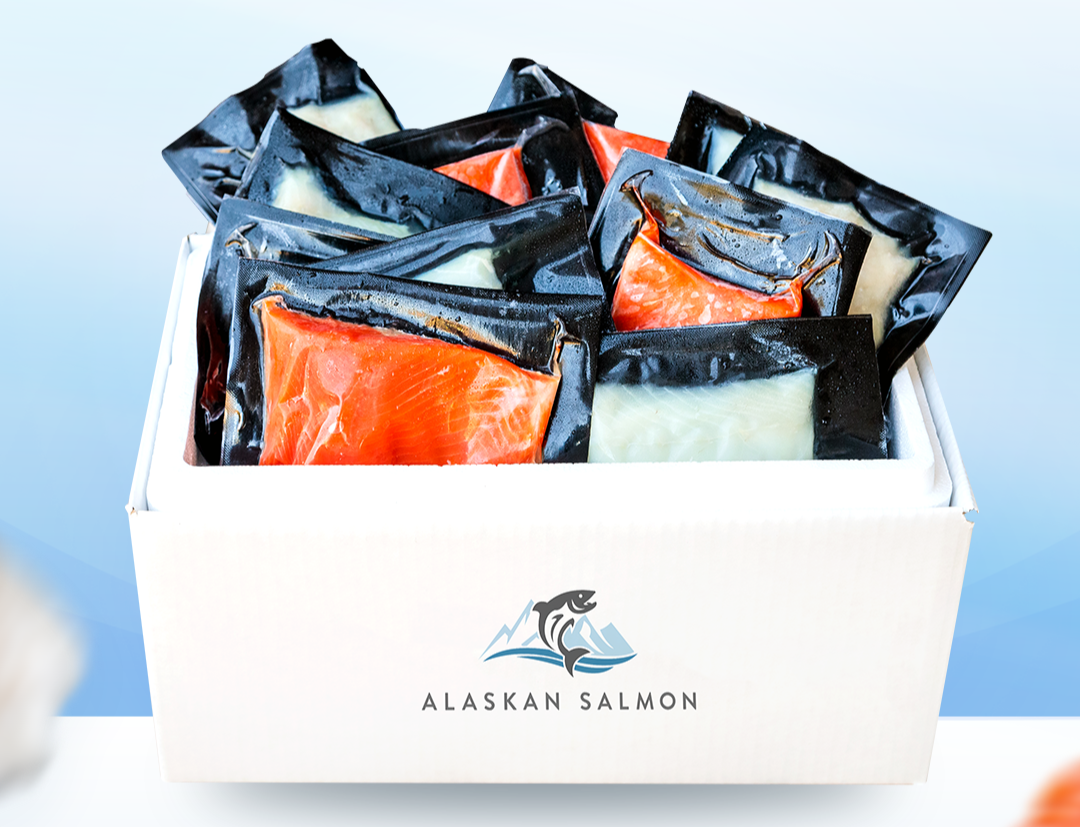How to Grill Salmon Perfectly Every Time – My 5 Secrets for Grilling Salmon
Updated on Jul 23, 2025
There’s something magical about grilled salmon. Maybe it’s the way the smoky flavor enhances the natural richness of the fish, or how the crispy skin gives way to perfectly tender flakes.
Whatever it is, I’ve learned over the years that nailing it on the grill isn’t just luck — it’s all about knowing a few key tricks.
Ever pulled salmon off the grill only to find it stuck to the grates, overcooked, or falling apart? I’ve been there too. But after plenty of trial and error (and a few rescued fillets), I’ve found a reliable rhythm that works every time.
These five secrets will help you serve salmon that’s perfectly grilled — crispy skin, juicy center, and full of flavor.
My 5 Secrets to a Perfectly Grilled Salmon
Perfect grilled salmon starts before it ever hits the grill. From choosing the right fillet to prepping your grill like a pro, these are the simple steps I never skip.
Start with a high-quality salmon
Great salmon starts with a great catch. I always go for wild-caught salmon — especially varieties like sockeye or king — because they’re naturally rich in flavor, firmer in texture, and packed with healthy omega-3s.
Unlike farmed salmon, wild-caught salmon feed in their natural environment, which gives the flesh its deep color and cleaner, more complex taste. It’s the kind of quality you can taste in every bite.
Related: Wild Caught vs. Farm Raised Salmon
Opt for skin-on fillets
The skin isn’t just there for looks — it’s your best ally on the grill. It acts like a natural barrier between the delicate flesh and the hot grates, helping prevent sticking and holding the fillet together. Plus, it locks in moisture, so your salmon stays juicy while developing that perfectly crisped edge.
Related: Can You Eat Salmon Skin?
Allow the salmon to come to room temperature
Moisture is the enemy of a good grill. If your salmon goes straight from the fridge to the flames, you’re more likely to end up with uneven cooking and a soggy sear.
I always let my fillets sit out for about 15–20 minutes and pat them dry with a paper towel before grilling. This helps the salmon cook evenly and gives you that crisp, golden crust.
Pro tip: After patting it dry, lightly salt the salmon about 10–15 minutes before grilling. It draws out even more surface moisture, key for getting that beautiful sear.
Season ahead, but not too far ahead
A little salt goes a long way. It not only enhances flavor but also helps draw out a bit of moisture from the surface, which makes for better browning and a cleaner release from the grill. Just don’t overdo the timing — season your salmon shortly before grilling, not hours ahead.
If you’re using a marinade, keep it light and brief. Acidic ingredients like lemon juice or vinegar can start to “cook” the salmon if left too long — more than 30 minutes — and you’ll end up with mushy fillets instead of firm, flaky fish.
Related: The Best Salmon Seasoning for Every Cooking Style
Clean and oil the grill
A clean, hot grill is crucial for preventing sticking and making sure your salmon cooks evenly. I always preheat my grill for at least 10–15 minutes, then give the grates a good scrub with a grill brush. After that, I oil the grates using a paper towel dipped in high-heat oil (gripped with tongs, of course).
I learned the hard way that skipping this step can ruin an otherwise perfect fillet — nothing’s worse than peeling salmon skin off the grill instead of your plate.
Start your salmon skin-side down
Grilling salmon skin-side down first is a smart way to protect the delicate flesh and keep the fillet moist. The skin acts as a natural barrier, allowing most of the cooking to happen from the bottom up without drying out the fish. It also helps the salmon hold its shape and prevents sticking.
When it’s time to flip, the flesh side only needs a minute or two to finish — just enough to stay tender and flaky. And the result? Perfectly crisped skin that adds flavor and texture to every bite.
How to Grill Salmon
Now that you’ve got the prep work down, it’s time to bring it all together on the grill. Here’s how I do it, step by step:
- Prepare the salmon: If your salmon is frozen, thaw it completely in the fridge overnight for the best texture. Once thawed, pat it dry with paper towels to remove excess moisture. Season it simply — salt, pepper, maybe a touch of oil or your favorite rub—and let it come to room temperature.
- Set up the grill: Preheat to medium-high, scrub the grates clean, and oil them well. A hot, clean grill keeps salmon from sticking and ensures even cooking.
- Grill the salmon: Start skin-side down and cook for about 6–8 minutes, depending on thickness. Flip carefully and grill for another 2–4 minutes until the flesh is just cooked through and flakes easily.
- Check for doneness: Salmon is done when the flesh turns opaque and flakes easily with a fork. You can also check the thickest part with a thermometer—125–130°F gives you moist, medium doneness. If it still looks translucent in the center, give it another minute or two.
- Rest the salmon: Once off the grill, let the salmon rest for 2–3 minutes before serving. This gives the juices time to redistribute, so every bite stays tender and flavorful. Cutting into it too soon can cause moisture loss— worth the short wait for perfectly juicy salmon.
Mistakes to Avoid When Grilling Salmon
Even with the best intentions, a few small missteps can lead to dry, stuck, or unevenly cooked salmon. Here are some common grilling mistakes to watch out for — and how to avoid them:
- Putting cold salmon straight on the grill: This can cause uneven cooking and make the salmon more likely to stick to the grates.
- Skipping the pat-dry step: Excess surface moisture prevents browning and crisping, and increases the chances of sticking.
- Not preheating the grill: A cold or underheated grill won’t sear properly, making the salmon harder to flip and more prone to tearing.
- Using skinless fillets directly on the grates: Without the skin as protection, the flesh can break apart and stick during cooking.
- Over-marinating in acidic ingredients: Leaving salmon in citrus or vinegar-based marinades for too long (over 30 minutes) can break down the texture and turn it mushy.
- Flipping too early: If you try to flip before the skin crisps and naturally releases, you risk tearing the fillet.
- Overcooking the salmon: Salmon cooks quickly; going beyond 130°F can dry it out and ruin that tender, flaky texture.
Summary
Grilling salmon doesn’t have to be intimidating. With a few simple techniques, like starting with high-quality wild salmon, keeping the grill clean and hot, and knowing when your fish is perfectly done, you’ll get restaurant-worthy results right at home!
If you want a head start on success, try our wild sockeye salmon. Once you taste the difference, you’ll see why we always say: great salmon starts with a great catch.
FAQs About Grilling Salmon
Do I need to flip salmon on the grill?
Flipping isn’t always necessary, especially if you’re using indirect heat or grilling with the lid closed. But if you want grill marks on both sides or crisped edges, flip once, after the skin has released naturally, usually after 6–8 minutes.
Can I grill salmon on foil or a cedar plank?
Yes! Grilling on foil helps prevent sticking and is great for skinless fillets or more delicate preparations. Cedar planks add a subtle smoky flavor and help protect the fish from direct heat. Just be sure to soak the plank for at least 1–2 hours before grilling.
What to serve with grilled salmon?
Grilled salmon pairs beautifully with fresh, seasonal sides. Think roasted vegetables, herbed rice, grilled asparagus, or a citrusy salad. For a lighter option, try it over greens with a lemon vinaigrette or yogurt-dill sauce.








